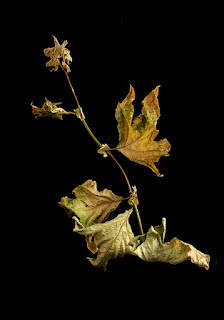In my youth, I was a good athlete. Not great. I was never world class material, but I could pick-up new sports relatively easily and, regardless of the sport I chose, I always achieved some level of success. In high school, I was a three varsity athlete, playing tennis, basketball, and softball. For years, basketball was my sport. I lived and breathed to be on the court. I managed to win a few MVP awards, and in my senior year, I was selected as the school’s female scholar-athlete. In college, on a whim one afternoon, I switched from basketball to track and field. I told the coach I wanted to break the school’s javelin record. When he asked me what my experience was, I admitted that I didn’t have any. Surprisingly, it didn’t deter him from giving me a spot on the team. When it came to running, I wasn’t exceptionally fast, but I was versatile. The coach knew I’d be up for trying any event. While my running times were always a disappointment, I did break the New York University record for javelin–a record I still hold today. After that, my goal was to qualify for nationals, and in my senior year, I succeeded.
Following college, life got in the way of sports, but I always prided myself on staying in shape. When my knees started to balk at the idea of running, I turned to walking. And I still lift weights daily. Recently, I returned to work, following a stint of homeschooling my son during the pandemic. Returning to work meant I could also resume studying Taekwondo with my son. I have a black belt, but at my age, I can’t kick as high as the teenagers in my class. Nor is my balance and coordination what it once was. Still, I am strong and my natural athleticism hasn’t completely abandoned me. I can do most of the drills–although I move slower than I once did–and I don’t shy away from sparring, even if it means getting kicked in the head by my much younger and far more nimble classmates.
When I first returned to the mat, there was only one other parent–a father–in the class. Nearly everyone else was thirty years–or more–younger than me. For many of the students, if you tripled their age, they would still be younger than me. Needless to say, that alone made me feel old. The young men–boys my son’s age or a bit older–in the class, were nice to me. When I paired up with them, they were patient with me. If they mistook my slower pace or more deliberate movements for flagging energy or physical exhaustion, they genuinely encouraged me to keep going, to not give up. If I was doing something incorrectly they tried to help, demonstrating the proper technique. I could only wish my joints still worked as well as theirs, or that old sports injuries didn’t rise up to haunt me. I’m sure they noticed that I was not as sure on my feet as they were, but they never made me feel bad because of it. They also never grumbled about being partnered with me. If it bothered them, if they preferred working with someone more aligned with their own ability, they never indicated it. Over time, I came to really appreciate their kindness.
The young women–high school girls–were different. Some of them simply ignored me, which was fine. It’s not like there was any common ground for us to have a conversation. A few were friendly. Recognizing that I often had my head in a book before class, they would stop to ask what I was reading. It seemed they too enjoyed literature and were not put out by the age difference between us. Sadly, the girls that made the greatest impression on me were the ones who took me back to high school; the ones who made it clear that they did not appreciate my presence in the class. Unlike the girls I knew in high school, they never verbalized their feelings, not to me anyway. They never told me I didn’t belong, but they didn’t need to. Their demeanors and their attitudes exuded their displeasure, their belief that they were better than I.
I hated being partnered with them. It took the pleasure out of the class. They would intentionally hold the clapper pad too high, knowing that I couldn’t kick as high as they could, even if they were shorter than me. I would readjust the pad to a height that was comfortable, and they would roll their eyes as if my limitations pained them. After they completed push-ups (on their knees as most girls seem to do, while I did them they like the men and boys) they were condescending in their attempt to sound encouraging while I finished mine.
Even worse than being partnered with them for drills was having to spar against them. The Mean Girls looked at me as if I were a heavy bag, either that or they hoped that if they hit me hard enough and frequently enough, I’d give up and go home–for good. I moved slower and provided an easy target. One Mean Girl tried to repeatedly hit me in the head, angling–it felt upon impact–to give me a concussion. More than once, I went home with a throbbing headache. Another Mean Girl side kicked me so hard, she marked me with a black and blue bruise the size of her heel. Many nights, I crawled into bed in agony, wondering why I kept going, why I repeatedly presented myself for injury. But I refused to quit simply because others perceived me as being too old–weak. I am not feeble–I am far from it. In paying my tuition, and in working as hard as my body permitted, I had as much right to be on the mat as they did. Ultimately, though–after that bruising side kick–I felt compelled to speak to the instructor and I asked him to please avoid matching me with certain students. He understood, and once we were kept apart, classes became more enjoyable.
I might have thought it was all in my head, a case of paranoia, but it turns out I am not alone. One night another mother, a woman close to my age, came to class. She had been a student at the school much longer than I, but it was the first time we took class together. Our similar age and height made us natural partners and we worked well together. For the first time on the mat, I didn’t feel inadequate. Taking turns during drills, I could focus on technique, because I no longer felt compelled to prove myself. And when one of us messed-up, or age made our movements awkward, we laughed–genuine good-hearted laughter–because life is too short to take everything seriously. In short, not only did I feel comfortable, I had fun, which was the whole reason I took up Taekwondo in the first place.
As I got to know the other mother better, I told her that classes were far better when she was there. She agreed. When I shared my feelings regarding the Mean Girls, she nodded. Her experience with them had been similar to mine, which is why she hadn’t been attending the school as regularly as she would have liked. Being partnered with them, she confirmed, was demeaning, “They acted as if they were somehow demoted every time I had to work with them.” Yes, that was it precisely. Getting stuck with either of us was the equivalent of drawing the short straw, and they didn’t want it. They didn’t want to be in a position where they were stuck with someone “weaker.” It made them look bad, or so they thought. To compensate, they did their best to knock us down, both literally and figuratively.
However, what they don’t seem to realize is that someday, they too will be old. They won’t always be able to kick so aggressively, so rapidly. Someday, they too will wake up and realize that they are not as fit or athletic as they once were. Age happens to everyone. It is unavoidable. We become our mothers whether we want to or not. What the Mean Girls fail to see is that we–the other mother and I–should present a glimmer of hope. A realization that age doesn’t have to be an end. There is no way I will ever again be able to compete with a younger crowd, but that doesn’t mean I can’t be competitive with my peers or that I can’t have fun. I can’t help but wonder where the Mean Girls will be in thirty-five years. Do they not realize that one day, in a future not as far off as they believe, they will wake up and find themselves standing face-to-face with someone much younger, someone prettier, someone more agile. Youth is fleeting and they won’t always have the advantage of it. I wonder how they will adjust.
As for me, I learned long ago that I don’t need anyone’s approval. My goals are no longer as lofty as they once were. I’m not out to make an Olympic team, though qualifying for the World Championship, in my age bracket, would be a satisfying accomplishment. Until then, I will continue working hard to be the best competitor that I can be, because the only competition that matters, ultimately, is how I stand up against myself.
© 2023 Elizabeth Jaeger





